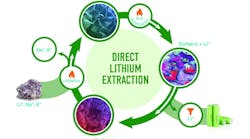The City of Gresham, Oregon, announced this week that its wastewater treatment plant has become the first in the Pacific Northwest to achieve "energy net zero."
This means that the facility produces about the same amount of electricity as it consumes in a year.
The Gresham plant treats approximately 13 million gallons of wastewater each day before releasing it into the nearby Columbia River. Organic matter from wastewater fuels 92 percent of the facility's power, using an on-site process that turns the sludge into biogas. The remaining 8 percent of the power produced by the plant comes from a 1,902-panel ground-mounted solar array.
"We've turned our biggest energy user into our biggest energy producer," commented Gresham Mayor Shane Bemis.
Biogas production at the Gresham wastewater treatment plant has almost doubled since 2012, when it started receiving deliveries of wastewater containing fats, oils and grease from Portland-area restaurants and food service establishments. The biogas is fed into two engines that convert it to heat and electricity which is used at the plant, with excess electricity sent to the Portland General Electric grid, officials explained.
Adopting these clean energy technologies, alongside efforts to make the plant more energy-efficient, saves the city $500,000 a year in electricity costs. The plant also generates around $250,000 a year in fees for accepting fats, oils and grease from regional food establishments.
The facility is operated and maintained by Veolia in a public-private partnership with the city. William J. DiCroce, president and COO of Veolia North America's Municipal & Commercial Business, said that similar achievements are possible elsewhere.


